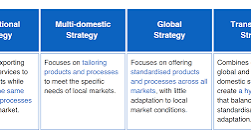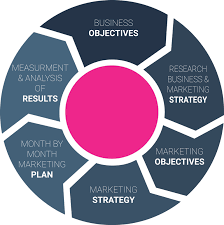The Importance of Custom Healthcare Software Development
In today’s rapidly evolving healthcare industry, the need for efficient and reliable software solutions has never been greater. Custom healthcare software development plays a crucial role in improving patient care, streamlining operations, and enhancing overall efficiency within healthcare organisations.
Benefits of Custom Healthcare Software
Custom healthcare software is designed to meet the specific needs and requirements of healthcare providers, ensuring seamless integration with existing systems and workflows. Here are some key benefits of custom healthcare software development:
- Enhanced Patient Care: Custom software solutions can help healthcare professionals access patient information quickly and accurately, leading to better diagnosis and treatment outcomes.
- Improved Efficiency: Tailored software can automate routine tasks, reduce manual errors, and streamline administrative processes, allowing healthcare providers to focus more on patient care.
- Data Security: Custom software can be built with robust security features to protect sensitive patient data from cyber threats and ensure compliance with data protection regulations.
- Scalability: Custom healthcare software can be easily scaled up or down to accommodate the changing needs of a healthcare organisation as it grows or evolves.
Challenges in Healthcare Software Development
Developing custom healthcare software comes with its own set of challenges, such as ensuring interoperability with existing systems, maintaining data integrity and security, and complying with stringent regulatory requirements. However, working with experienced developers who understand the complexities of the healthcare industry can help overcome these challenges effectively.
Conclusion
In conclusion, custom healthcare software development is essential for modernising the healthcare sector and delivering high-quality patient care. By investing in tailored software solutions that address specific needs and challenges within a healthcare organisation, providers can improve efficiency, enhance data security, and ultimately deliver better outcomes for patients.
Five Essential Tips for Developing Custom Healthcare Software
- Understand the specific needs and requirements of healthcare professionals and patients.
- Ensure compliance with data protection regulations, such as GDPR and HIPAA.
- Prioritize security measures to protect sensitive patient information.
- Design user-friendly interfaces for easy navigation and adoption by healthcare staff.
- Implement thorough testing procedures to ensure the software functions accurately and reliably.
Understand the specific needs and requirements of healthcare professionals and patients.
To ensure the success of custom healthcare software development, it is crucial to thoroughly understand the specific needs and requirements of both healthcare professionals and patients. By conducting in-depth research and engaging with stakeholders, developers can tailor software solutions that address the unique challenges faced by healthcare providers and meet the expectations of patients. This approach not only enhances the usability and effectiveness of the software but also fosters better communication, collaboration, and ultimately improves patient care outcomes.
Ensure compliance with data protection regulations, such as GDPR and HIPAA.
It is crucial for custom healthcare software development to ensure compliance with data protection regulations, such as GDPR (General Data Protection Regulation) in Europe and HIPAA (Health Insurance Portability and Accountability Act) in the United States. Adhering to these regulations helps safeguard patient data privacy and security, mitigating the risk of data breaches and legal repercussions. By implementing robust measures to comply with GDPR and HIPAA requirements, healthcare organisations can build trust with patients and demonstrate a commitment to upholding the highest standards of data protection in their software solutions.
Prioritize security measures to protect sensitive patient information.
It is paramount to prioritise security measures in custom healthcare software development to safeguard sensitive patient information. Implementing robust security protocols and encryption techniques can help prevent unauthorised access, data breaches, and cyber threats, ensuring the confidentiality and integrity of patient data. By placing a strong emphasis on security measures, healthcare organisations can build trust with patients, comply with data protection regulations, and uphold the highest standards of privacy and confidentiality in their operations.
Design user-friendly interfaces for easy navigation and adoption by healthcare staff.
When developing custom healthcare software, it is crucial to prioritise the design of user-friendly interfaces to facilitate easy navigation and adoption by healthcare staff. Intuitive interfaces that are simple to use can significantly enhance the efficiency of healthcare professionals in accessing and utilising the software effectively. By focusing on creating interfaces that are intuitive and user-centric, healthcare staff can navigate the software seamlessly, leading to improved productivity and a smoother workflow within the healthcare environment.
Implement thorough testing procedures to ensure the software functions accurately and reliably.
To ensure the effectiveness and reliability of custom healthcare software, it is crucial to implement thorough testing procedures. By conducting comprehensive testing processes, healthcare organisations can verify that the software functions accurately, meets all requirements, and operates reliably in real-world scenarios. Rigorous testing helps identify and rectify any potential issues or bugs before deployment, ultimately enhancing the overall performance and usability of the software for healthcare professionals and patients alike.






